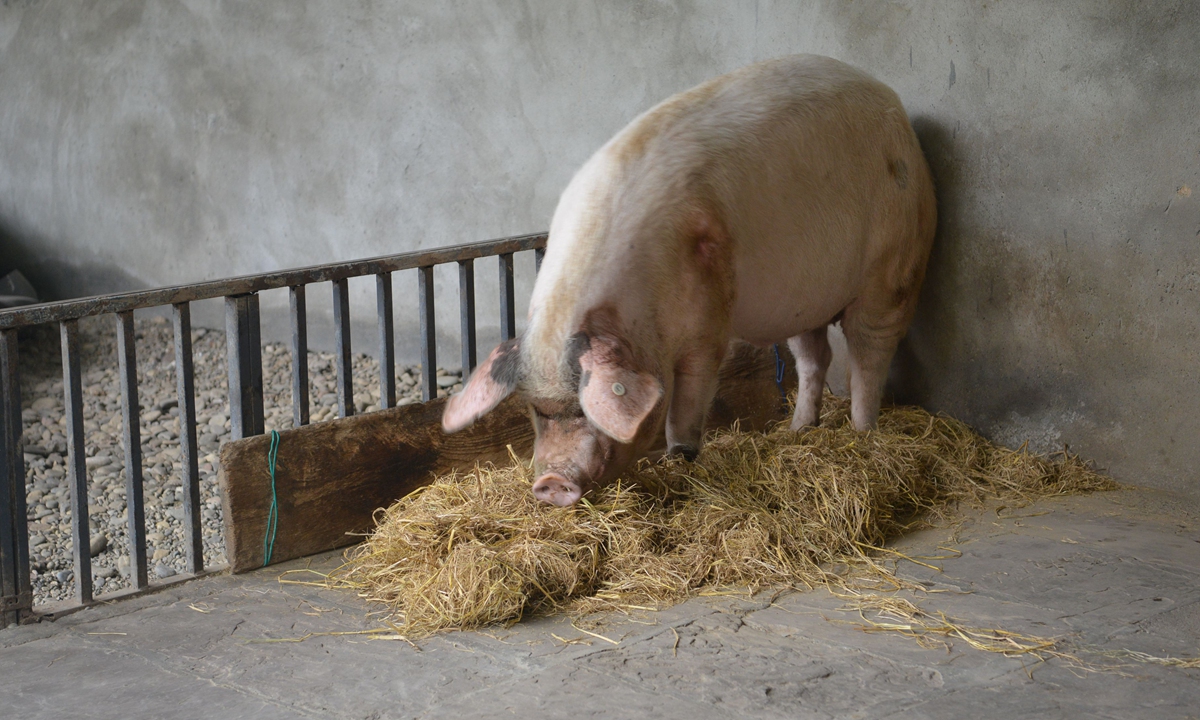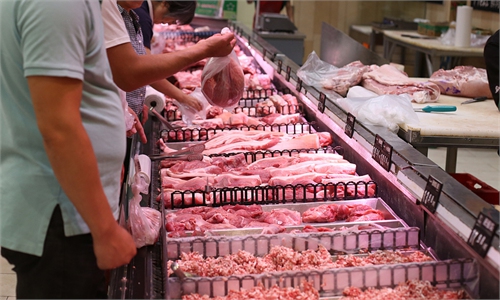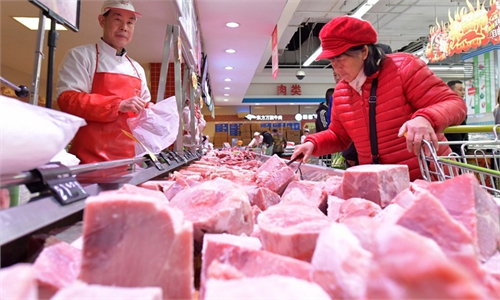
A pig eats hay in Southwest China's Sichuan Province. File photo: cnsphoto
Southwest China's Sichuan Province, a major hog production base in the country, introduced measures to stabilize hog production and pork prices on Wednesday, following the finding of African swine fever (ASF) in the province in March.
"Departments at all levels should make every endeavor to stabilize hog production and pork prices, strengthen policy support and confidence, in order to reach this year's goals of producing 40 million hogs on hand and 58 million hogs for marketing," read an official document.
A hog farm in the province found ASF cases in March with 38 dead and 38 sick animals among the 127 hogs on hand. North China's Inner Mongolia Autonomous Region and Northwest China's Xinjiang Uygur Autonomous Region also found the virus in April.
"The existence of ASF is normal, but it is unlikely to cause a massive outbreak in the country, thanks to intense attention given by local governments to hog production and China's established experience to contain the virus," Li Guoxiang, a research fellow at the Chinese Academy of Social Sciences, told the Global Times on Wednesday.
However, Li warned that hog farmers should not treat it lightly.
On Wednesday, the Ministry of Agriculture and Rural Affairs together with the Ministry of Finance and the China Banking and Insurance Regulatory Commission said that the government will provide more guidance and support to hog farmers through favorable fiscal and monetary policies.
A hog breeder in North China's Tianjin got a loan of 200,000 yuan to expand the hog breeding scale at the farm and improve farm conditions, the Tianjin Daily reported on Wednesday.
China's hog production has returned to normal levels after witnessing tight supply in tandem with skyrocketing pork prices. Pork prices fell from 54 yuan ($8.35) per kilogram in January to 24 yuan in June.
Regarding the pork price dive, Chinese leading hog producer New Hope Liuhe told the Global Times that it will cushion the impact of hog prices by developing hog futures, slaughtering and processing businesses, and hog feed operations.
Li said that falling domestic prices may reduce China's pork imports in the second half of the year.
China imported more than 2.46 million tons of pork from January to May, up 9.57 percent year-on-year.




